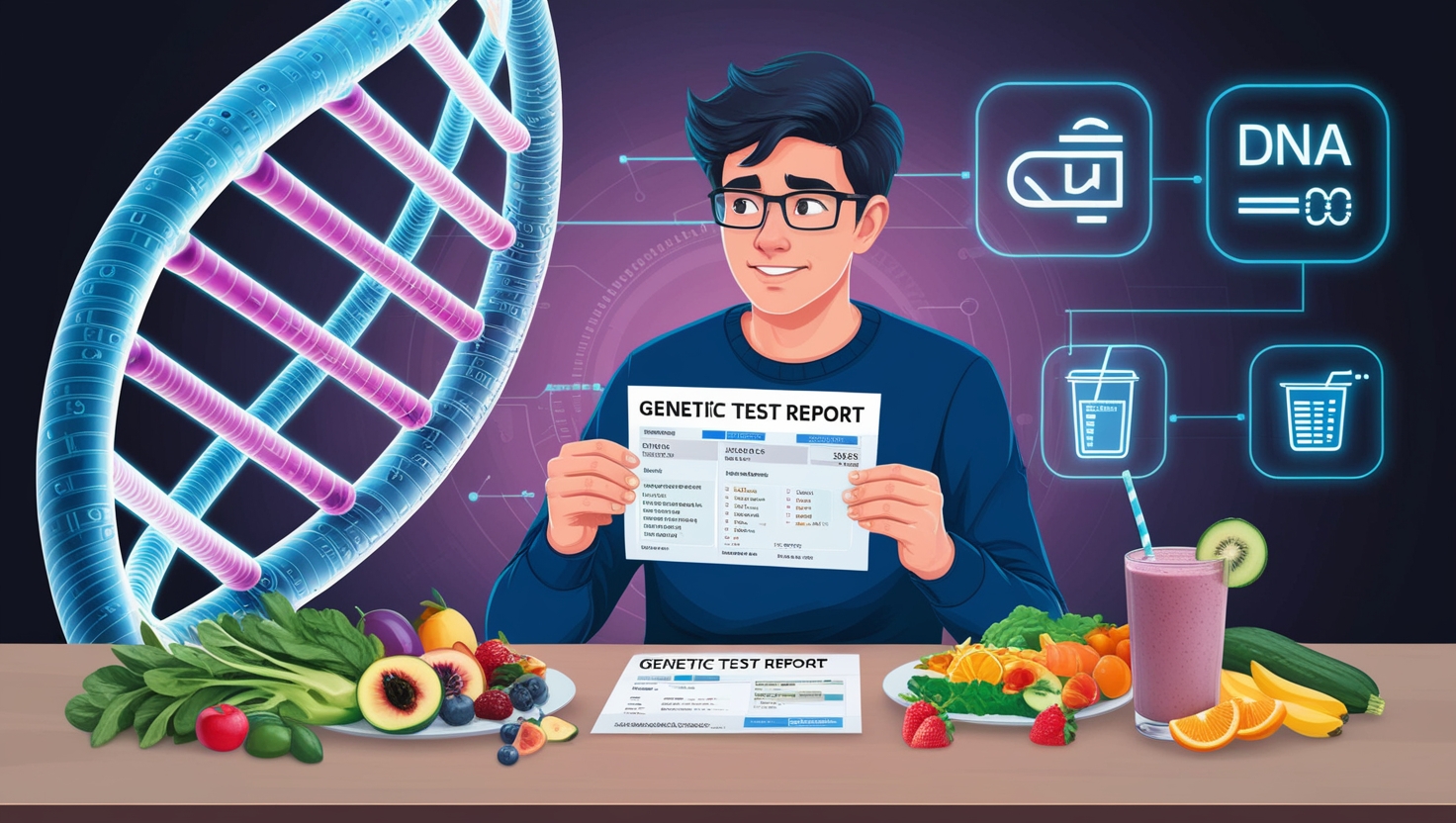Have you ever wondered why some people thrive on a high-protein diet while others feel better eating plant-based? The answer might lie in your DNA. Thanks to advancements in genetic testing, you can now discover how your genes impact your dietary needs and make better-informed choices about what to eat. DNA-based diets promise to personalize nutrition like never before, offering a new way to optimize your health and performance.
What Is a DNA-Based Diet?
A DNA-based diet involves analyzing specific genetic markers that influence how your body responds to various foods and nutrients. By sending a saliva sample to a genetic testing company, you can receive insights into your genetic predispositions related to metabolism, nutrient absorption, food sensitivities, and more. These results are then used to create a customized diet plan that aims to match your genetic profile.
The idea is that your genes can provide clues about which foods your body processes efficiently, which nutrients you might need more of, and even what types of exercise might suit you best. It’s a step towards truly personalized nutrition, aiming to move beyond one-size-fits-all diets.
How Does It Work?
The process usually involves the following steps:
- Genetic Testing: You provide a DNA sample (usually saliva or a cheek swab) to a company that specializes in genetic analysis.
- Analysis of Genetic Markers: The company analyzes specific genes known to be related to various aspects of metabolism, such as how you process fats, carbohydrates, and proteins, as well as your body’s response to vitamins and minerals.
- Customized Recommendations: Based on the analysis, you receive a report detailing dietary recommendations, which may include optimal macronutrient ratios, food sensitivities (like lactose or gluten intolerance), and suggestions for supplements that align with your genetic needs.
- Personalized Diet Plan: The insights are used to create a diet plan that’s tailored to your genetic profile, which you can then integrate into your daily routine.
What Can Your Genes Tell You?
DNA-based diet plans can provide a variety of insights, including:
- Metabolism of Macronutrients: Your genetic makeup can influence how efficiently you metabolize carbs, fats, and proteins. For example, some people have genes that predispose them to better fat metabolism, while others may be more efficient at utilizing carbohydrates for energy.
- Vitamin and Mineral Absorption: Genes can affect how well your body absorbs certain nutrients, such as Vitamin D, B12, and iron. Understanding these predispositions can help you focus on foods or supplements that address your unique needs.
- Food Sensitivities: DNA testing can reveal whether you have a genetic predisposition to certain food intolerances, such as lactose intolerance or gluten sensitivity. This allows you to adjust your diet to avoid discomfort and improve digestion.
- Appetite and Eating Behavior: Some genetic markers are associated with appetite regulation and satiety. This means that your DNA might influence how full you feel after a meal or your cravings for certain types of foods.
Benefits of DNA-Based Diets
- Personalization: Unlike generic diet plans, a DNA-based diet is customized to suit your unique biology, making it more likely to meet your body’s specific needs.
- Efficiency: With insights into how your body processes different nutrients, you can avoid the trial-and-error approach of conventional dieting. This can save time and frustration, helping you focus on foods that align with your genetics.
- Motivation and Engagement: Knowing that your diet is backed by scientific analysis of your own DNA can be highly motivating. It can encourage you to stick to dietary changes because they feel tailored just for you.
Limitations to Consider
While DNA-based diets hold great promise, it’s important to recognize their limitations:
- Genetics Is Just One Factor: Your DNA is not the sole determinant of your health. Lifestyle, environment, physical activity, and stress levels also play significant roles in shaping your well-being. A DNA-based diet should be seen as a tool rather than a definitive solution.
- Cost: Genetic testing can be expensive, and the quality of analysis can vary between providers. It’s important to choose a reputable company with a focus on privacy and accuracy.
- Not All Insights Are Actionable: Some genetic variations may provide interesting information but have limited practical impact on your diet. It’s essential to work with a qualified healthcare professional who can help you interpret the results in a meaningful way.
Is It Right for You?
If you’re a young adult looking for a way to take control of your health, a DNA-based diet could offer valuable insights into how your body functions. It’s especially appealing for those who have struggled with finding the right diet or have food sensitivities they can’t quite pinpoint.
However, it’s important to approach this trend with an open mind and a critical perspective. While genetics can guide you toward a more tailored approach, maintaining a balanced diet, staying active, and focusing on overall well-being are key factors that contribute to long-term health.
Conclusion: A New Era of Personalized Nutrition
DNA-based diets are paving the way for a new era of personalized nutrition, where dietary choices are tailored to your genetic blueprint. They offer an exciting opportunity to better understand your body’s unique needs and optimize your diet for better health and performance. While not a magic solution, this innovative approach brings us one step closer to making nutrition truly individualized—something that may transform how we approach health and wellness in the years to come.




